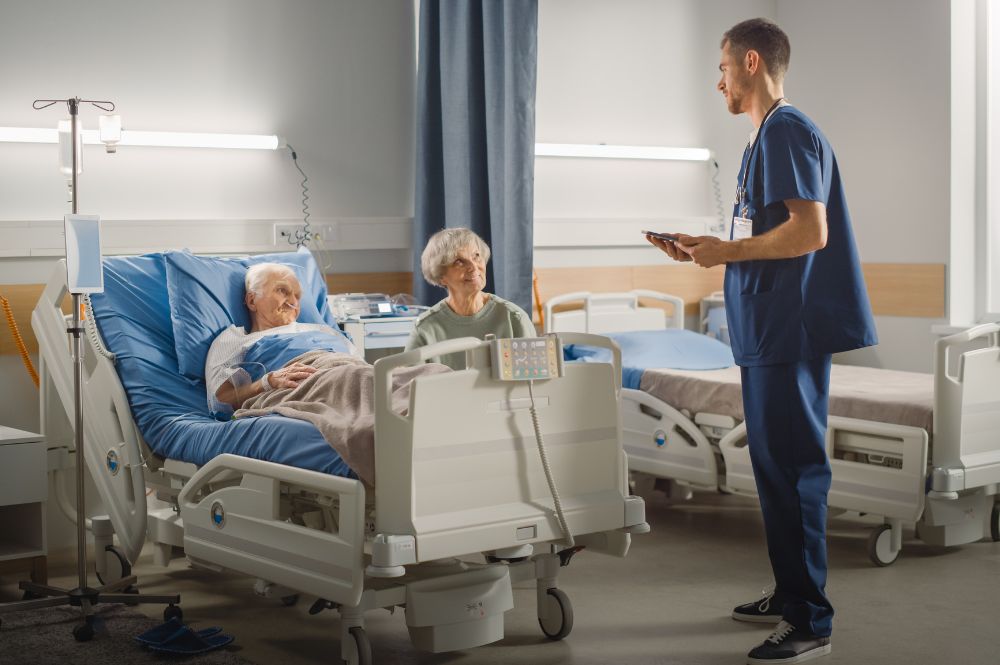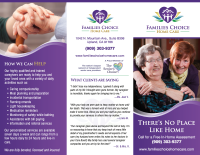
Enlisting the support of in-home after-surgery care is the best way to protect the health and safety of an aging loved one. In addition to being weaker and less able to handle daily tasks, seniors who live alone—or with another compromised senior—have increased risks of postoperative infections, hospital readmission, and fall-related injuries.
When you work with a licensed, Inland Empire home care agency, your loved one benefits from regular attention and companionship, fresh groceries and delicious meals, light housekeeping and laundry, personal care services, and more.
How Does In-Home After-Surgery Care Work?
Postoperative home care is designed to provide personalized support and care after they return home from the hospital or post-acute rehab facility.
Our team creates a seamless connection between your loved one’s healthcare providers and the medical home healthcare team, facilitating the client’s return to an independent life in the comfort of their home.
It’s not easy to return to a house all by yourself when you’re weak, sore, and have pages of post-op care instructions to keep track of. The latter is even more challenging if a post-op patient is taking pain medications, making it difficult to concentrate or keep track of details.
In-home care is scheduled on a full-time or part-time basis. Sometimes we stay overnight so spouse/family caregivers can rest. We then help with the morning routine, bathing/changing, and breakfast before we leave in the morning. Or, if clients live alone or their partner cannot support their physical care, our caregivers provide 24-hour in-home care for several days or weeks before tapering the shifts in alignment with our client’s recovery, strength, and ability.
It’s never too late to schedule post-op home care but ideally, you want to schedule services before being discharged from the hospital. However, if your loved one is home for a few days alone and it’s clear they’re struggling to keep afloat, qualified home caregivers are here to help.
Postoperative Home Care Services
Our services are charged by the hour rather than by the service and are available in four-hour minimum shifts. We do whatever is needed during our shifts to keep our clients safe, taken care of, and as comfortable as possible while they heal.
This includes a mix of any of our home care services:
- Grocery shopping and errand running
- Meal planning and preparation
- Transportation to/from various appointments
- Companionship
- Medication reminders
- Exercise or physical therapy support as needed
- Personal and hygiene care (changing, showering/bathing, grooming, etc.)
- Toileting and incontinence care
- Pet care
- Light housekeeping
- Laundry and linen changes
- Minor de-cluttering and reorganization to make main living areas safer and more accessible
- Mobility support with transfers and transitions
- Refilling and picking up prescriptions
- Daily reports to the family regarding the client’s recovery and overall wellbeing
- And more
Caregivers are there to provide support in any way we can. Services are always tailored to individual client needs.
Benefits of Scheduling In-Home Care After a Surgery
Safety, security, and well-being are the general goals of in-home post-surgical support. However, clients also benefit from:
1. Reduced hospital readmission risk
Ongoing research shows that some of the top causes of unnecessary hospital readmissions are due to:
- Having a chronic condition. If a loved one has a pre-existing, chronic condition such as heart disease or type 2 diabetes, they need more support when they come home. Once they’re back to their pre-surgery condition, caregivers and clients can discuss whether part-time or on-call care should remain in place.
- Advanced age. The older a patient is, the higher their readmission rate once they return home. Daily tasks become more difficult for seniors, so it makes sense that they need greater support in the days and weeks after returning home from surgery.
- Post-op infections. If clients cannot easily care for themselves, bathe/shower regularly, get into and out of clean clothes, or get the rest they need, they risk a post-op infection. In some cases, these infections become septic, which is serious and potentially fatal.
- Fall injuries. A study published by the NIH showed that post-surgical fall risks are exceptionally higher for aging adults that demonstrate weakness, abnormal gait (common with Parkinson’s and dementia-related conditions), balance issues, urinary incontinence, or a history of previous falls.
- Being unengaged with postoperative instructions and care. If you’re tired, weak, under the influence of pain meds, or resting for long periods—it’s easy to forget or lose track of post-op instructions. Caregivers are there to take up the helm, paying attention and providing reminders to help clients heal well and faster.
If your loved one has any of the above risk factors, connect with a qualified home care agency.
2. Remaining in the comfort of their own home
In some cases, clients aren’t allowed to come home or stay home without the support of daily caregivers. As a result, physicians are more attentive than ever to the quality of care at home to reduce readmission rates on their watch.
Scheduling in-home care following surgery may be the only way to allow senior loved ones to gain release from the hospital, allowing them to rest, replenish, and heal where they’re most comfortable.
3. Access to delicious, nutritious foods
A healthy diet is essential to post-op recovery. However, preparing meals is virtually impossible for those just returning home. Our caregivers work with clients and families to create healthy, enticing meals and snacks aligned with dietary restrictions.
4. Acclimate to home care for the future
Have you noticed signs your parent or grandparent needs more support to remain safely at home? Clients who are initially reluctant about home care frequently find that post-op care changes their minds.
For example, we’re never surprised to hear from former clients in their 60s and early 70s who call back after using us for in-home care following a total knee or hip replacement. Once they’ve healed and we’re gone, they miss some of the services they’d grown accustomed to, such as errand running, meal prep, and light housekeeping.
Over time, we adapt services as age-related changes create a greater need. Because we’ve already established a bond, they have no trouble saying “yes” to the services.
Work With an Experienced Post-Op Home Care Agency
The key to quality post-surgical home care you trust is to vet home care agencies accordingly. We invite you to schedule a free, in-home assessment with Families Choice Home Care to get the ball rolling. Read more about what to consider when choosing a home care agency.





